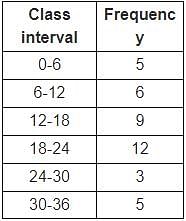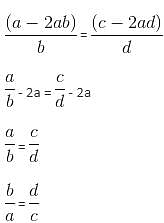REET Level 1 Mock Test - 1 - REET MCQ
30 Questions MCQ Test - REET Level 1 Mock Test - 1
An individual is in a transition state between childhood and adulthood he is an
An individual is in a transition state between childhood and adulthood he is an
Directions: Answer the following question by selecting the most appropriate option.
Shivangi, a student of class 4 usually takes away things belonging to her classmates quietly. The teacher should
An assessment that is conducted prior to the start of teaching or instruction is known as:
According to the theory of social learning of Albert Bandura, which one of the following is true?
Which of the following expression represents the area of the rectangle given below?

Procedural fluency in Mathematics implies knowledge of rules, formulae, or algorithms, and implementing them with accuracy, flexibility and efficiency:
Flexibility in Mathematics refers to:
A teacher introduced multiplication in her class as repeated addition. Then, by grouping of same number of objects taken multiple times, she introduced the 'x' symbol. Further, she conducted a small activity of finding product using criss-cross lines of matchsticks. Here, the teacher is
The human information processing system does not have which of the following features which have very direct implications for introducing young children to the world of formal mathematics
Consider the frequency distribution table the classification of marks obtained by 40 students out of 36 marks in mathematics test.

How many students got marks between 12 to 24?
Which method was used in the below solution?
Given:
b/a = d/c
To prove: d(c - 2b) = d (a - 2ab) = b(c - 2ad)
Solution: d(a - 2ab) = b(c - 2ad)

प्राथमिक स्तर के शुरूआती चरणों से ही किस कौशल विकास को महत्व दिया जाना चाहिए ?
प्राथमिक स्तर पर भाषा शिक्षण के लिए किस प्रकार का साहित्य उचित रहता है?
प्राथमिक स्तर पर भाषा शिक्षण के लिए किस प्रकार का साहित्य उचित रहता है?
Directions: Go through the poem given below and answer the question that follows by choosing the most appropriate option:
In the dark that falls before the dawn,
When the dew has settled on the thorn,
When the stars have been obscured by clouds,
A silence covers all things in shrouds.
No wind sighs in the mulberry tree,
No firefly glimmers wild and free,
A shadow has wrapped the night in gloom,
It's silent as a deserted tomb.
All of a sudden a lapwing's cry
Cuts the black silence as it flies by,
Again and again it slashes the dark
That haunts the empty, desolate park.
Anguish, sorrow pours from its throat,
It wings in the night, note after note;
I open my window so the light
Will flood the dark of this wretched night.
Why does it cry so miserably?
Why is it so solitary?
All I know is that loss and ache
Are left behind in the lapwing's wake.
Q. The synonym of 'Wretched' as used in the passage is
Read the given passage carefully and answer the questions that follow:
Once upon a time, there was a young girl named Lily who loved to read books. She would spend all her free time in the library, reading all sorts of books. Her parents encouraged her love for reading and would often gift her books as presents. One day, while browsing through the library, Lily did stumble upon a book that was unlike any other. The book was old and dusty, and the cover had a strange symbol on it. Lily was intrigued and decided to take the book home to read. As soon as she opened the book, strange things began to happen. The room filled with a bright light, and Lily felt herself being transported to another world. She found herself standing in a beautiful garden filled with exotic flowers and trees. The sky was a brilliant shade of purple, and the air was filled with the sweet fragrance of flowers.
Lily explored this new world for hours, meeting friendly creatures and experiencing new adventures. As the day drew to a close, Lily realized that she needed to find her way back home. She searched for the book that had brought her here but couldn't find it. Just as she was about to give up hope, a kind old man appeared and asked her what was wrong. Lily explained her situation, and the old man smiled and told her that she needed to solve a riddle to find her way back home. The riddle was difficult, but Lily was determined to solve it. After hours of thinking, she finally figured out the answer. The old man congratulated her and led her to a portal that would take her back home. Lily found herself back in her own room, holding the old book in her hands. She couldn't believe what had happened and wondered if it had all been a dream. She opened the book again, but this time, everything was as it should be.
Q. Read the following statements carefully and choose the correct option:
A) Lily had no prior knowledge of the existence of the mysterious world that she found herself in after opening the old book.
B) Her love of reading, curiosity, and desire for knowledge all played a role in her frequent visits to the library.
Directions: Go through the passage carefully and answer the question that follows:
Summer break was fast approaching, and all Ram wanted to do was to go to a hill station. Unfortunately, Ram’s parents had different plans. They had booked a week-long tropical cruise. Ram hated warm weather and asked if he could just stay at his best friend’s house so he could he could go to any hill station with his buddies. His parents didn’t want to hear anything of it. He kept debating with them about the topic, but they would not change their minds. Family time was important to them, and it was a tradition that they spend the summer break together.
The week of the cruise arrived, and Ram continued to mumble his complaints as he and his family left their house to head south. Ram’s dad told him that he would only make the vacation worse for himself if he didn’t change his attitude and open his mind to a new experience. Ram still couldn’t stop thinking about all the hill stations he was leaving behind.
When they arrived at the port to board the ship, Ram had a hard time admitting that he was actually impressed with the size of the ship. He had seen the brochures but seeing the ship in person was a whole new ball game. Then he remembered that the brochure said something about a surfing pool. Maybe surfing would be somewhat fun at a hill station.
Ram climbed aboard the ship with his parents, and then they walked around to check everything out. He couldn’t believe how extravagant the accommodations were. The dining room looked like a royal hall; the game room had all of his favorite games; the ship’s deck had several different swimming pools for different purposes. Then Ram saw the surfing pool. It was incredible. It wasn’t a big pool, but it had big waves, and the girl who was demonstrating how to ride the waves made it look like a ton of fun.
Ram asked his parents if he could go put his swim shorts on so that he could try surfing. They said, “Of course.” They wanted to put their swim suits on as well, and, much to Ram’s surprise, they wanted to try surfing too.
They enjoyed themselves, and by the time the week-long cruise was over, Ram had new friends he planned to keep in touch with, a new hobby, and great memories. He apologized to his parents for initial moaning and groaning and told them that it was his best vacation ever.
Q. Why did Ram's dad say to him that he would make his vacation worse?
Directions: Read the given passages carefully and answer the questions that follow:-
Everything that men do or think concerns either the satisfaction of the needs they feel or the need to escape from pain. This must be kept in mind when we seek to understand spiritual or intellectual movements and the way in which they develop, for feeling and longing are the motive forces of all human striving and productivity – however nobly these latter may display themselves to us.
What, then, are the feelings and the needs which have brought mankind to religious thought and to faith in the widest sense? A moment’s consideration shows that the most varied emotions stand at the cradle of religious thought and experience. In primitive people, it is, first of all, fear that awakens religious ideas – fear of hunger, of wild animals, of illness, and of death. Since the understanding of causal connections is usually limited on this level of existence, the human soul forges a being, more or less like itself, on whose will and activities depend the experiences which it fears. One hopes to win the favor of this being, by deeds and sacrifices, which according to the tradition of the race are supposed to appease the being or to make him well disposed to man. I call this the religion of fear.
This religion is considerably established, though not caused, by the formation of priestly caste which claims to mediate between the people and the being they fear and so attains a position of power. Often a leader or despot will combine the function of the priesthood with its own temporal rule for the sake of greater security, or an alliance may exist between the interests of political power and the priestly caste.
Q. How did religion become firmly established?
Direction: Read the following passage carefully and answer the given questions.
Once upon a time, there was a greedy merchant who owned a magnificent horse. The horse was strong and fast, and the merchant was proud of it. He would often travel long distances with the horse to trade goods and make a profit.
One day, the merchant had to travel to a faraway city to sell his goods. He decided to take his horse with him as he knew it could cover the distance quickly. However, he didn't consider the fact that the horse would need rest and care along the way.
As they started their journey, the merchant pushed the horse to go faster and faster, not stopping for breaks. The horse was getting tired and was unable to keep up with the merchant's demands. The merchant didn't care and continued to ride the horse harder, thinking only of his profit.
As they travelled further, the horse began to slow down, and its breathing became laboured. The merchant didn't take notice and kept pushing the horse until it eventually collapsed on the ground, exhausted and unable to move.
The merchant was angry and frustrated that his horse had failed him. He cursed the animal and tried to force it to get up, but the horse was too weak to move. Realizing that he wouldn't be able to reach his destination without a horse, the merchant decided to leave the animal behind and continue on foot, leaving the exhausted horse on the side of the road.
Days later, the merchant finally reached his destination, but he had lost a lot of his merchandise along the way. He realized that his greed had led to his downfall, and he regretted his actions towards the horse. He wished he had taken better care of it and had considered its needs.
From that day on, the merchant vowed to treat his animals with kindness and respect and not to let his greed get in the way of his morals. The lesson he learned was that sometimes, taking a break and looking after yourself and those around you is more important than making a profit.
Q. Why merchant travel long distances with his horse?
Read each of the following passages and answer the question by selecting the most appropriate option.
Stopping By Woods on a Snowy Evening
Whose woods these are I think I know.
His house is in the village though;
He will not see me stopping here
To watch his woods fill up with snow.
My little horse must think it queer
To stop without a farmhouse near
Between the woods and frozen lake
The darkest evening of the year.
He gives his harness bells a shake
To ask if there is some mistake.
The only other sound's the sweep
Of easy wind and downy flake.
The woods are lovely, dark and deep.
But I have promises to keep,
And miles to go before I sleep,
And miles to go before I sleep.
Q. The woods in winters are beautiful and:
Which of the following is not true with respect to potatoes?
Which is the best period for the people of Bihar state to start bee-keeping?
Directions: Answer the following question by selecting the most appropriate option.
Environmental factors that shape the development of a child include all of the following, except





















